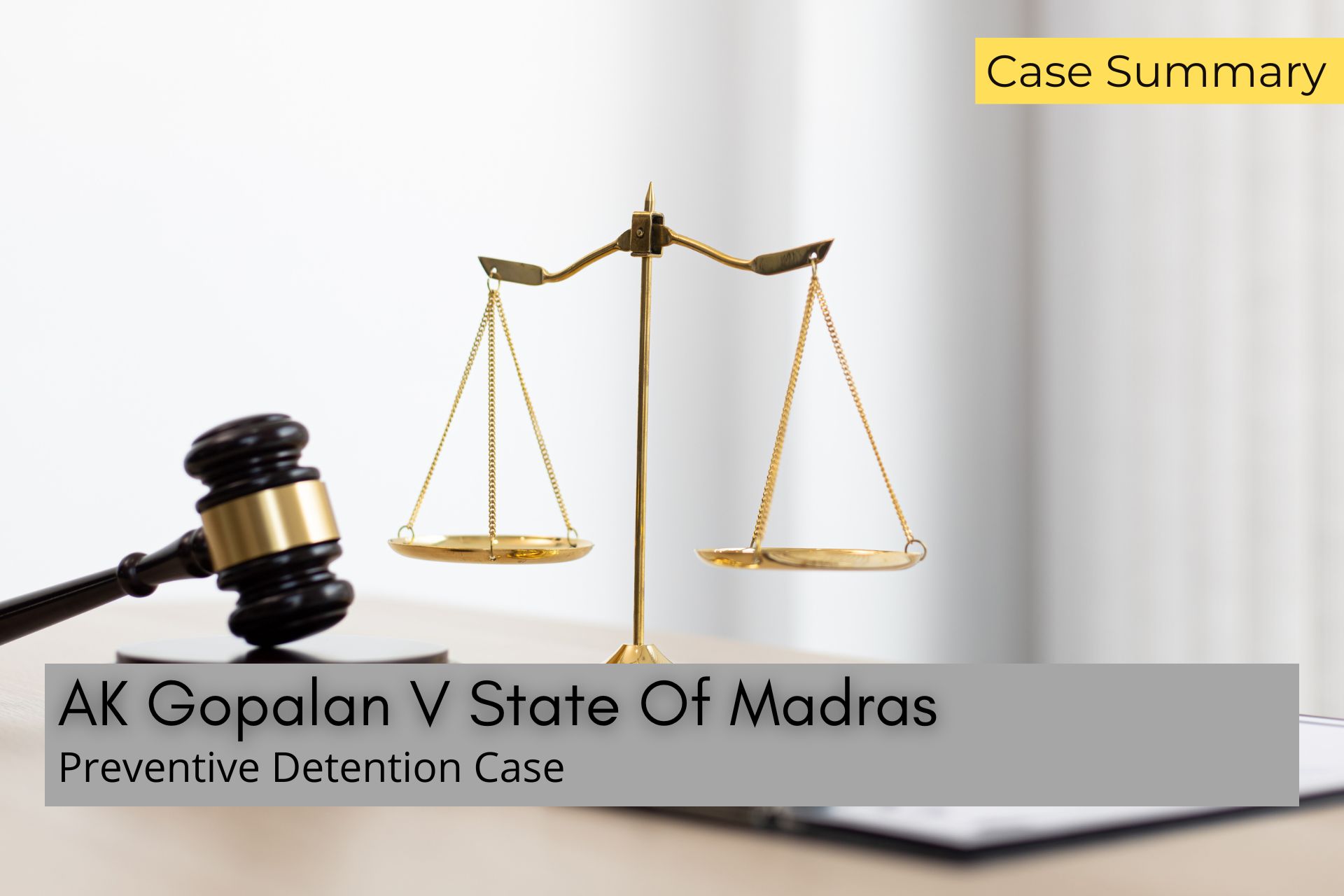
Important : Go through Maneka Gandhi V Union Of India (Click Here)
AK Gopalan V State Of Madras
AIR 1950 SC 27 : 1950 SCR 88 : 1950 SCJ 174
Brief
Citation : AIR 1950 SC 27 : 1950 SCR 88 : 1950 SCJ 174
Court : Supreme Court Of India
Date of Decision : 19 May 1950
Judges : Harilal Kania CJ, Saiyid Fazl Ali, M.Patanjali Sastri, Mehr Chand Mahajan, B.K Mukherjea and Sudhi Ranjan Das, JJ
Facts
This petition was filed by AK Gopalan under Article 32 of the Constitution of India for a writ of Habeas Corpus against his detention in the Madras jail. In the petition AK Gopalan had mentioned numerous dates indicating how he had been under detention since December 1947. AK Gopalan had been sentenced to imprisonment but those convictions were set aside. while he was thus under detention, under one of the orders of the Madras State Government. On 1st March 1950 AK Gopalan was served with an order of the Madras State Government under Section 3(1) of Preventive Detention Act, 1950.
AK Gopalan challenged the legality of the order as it was contented that the Preventive Detention Act, 1950 contravenes with the provisions of Article 13, Article 19 and Article 21 and the provisions of the Act were not in accordance with Article 22 of the Constitution of India. AK Gopalan had also challenged the validity of the order on the ground that it had been issued Mala Fide.
The burden of proving the allegation was on AK Gopalan because he had not disclosed the grounds supplied to him for his detention and the question of Mala Fide order therefore could not be gone into under the petition. The question as to the validity of the Preventive Detention Act was argued before the Hon’ble Supreme Court at a great length. This very case was the first case in which different Articles of the Constitution of India contained in the Fundamental Rights chapter had come up for discussion.
Issue
Whether the Preventive Detention Act, 1950 is Ultra Vires the Fundamental Rights under the Constitution of India?
Held
In this case it was held that the Preventive Detention Act, 1950 was not Ultra Vires but rather was Intra Vires the Constitution of India with the exception of Section 14 which is illegal and Ultra Vires. The validity of Section 14 does not affect the rest of the provisions in the Act. Section 12 of the Act also does not conform to the provisions of the Constitution and is therefore Ultra Vires.
It was further also held that Article 21 is applicable to preventive detention and the Preventive Detention Act, 1950 permits detention beyond a period of three months and excludes the necessity of consulting an Advisory Board if the opening words of Clause (7) of Article 22 are complied with Sub-Clause (b) of the said Article is permissible and it is not obligatory on the Parliament to prescribe any maximum period.
Read more
Maneka Gandhi V Union Of India







